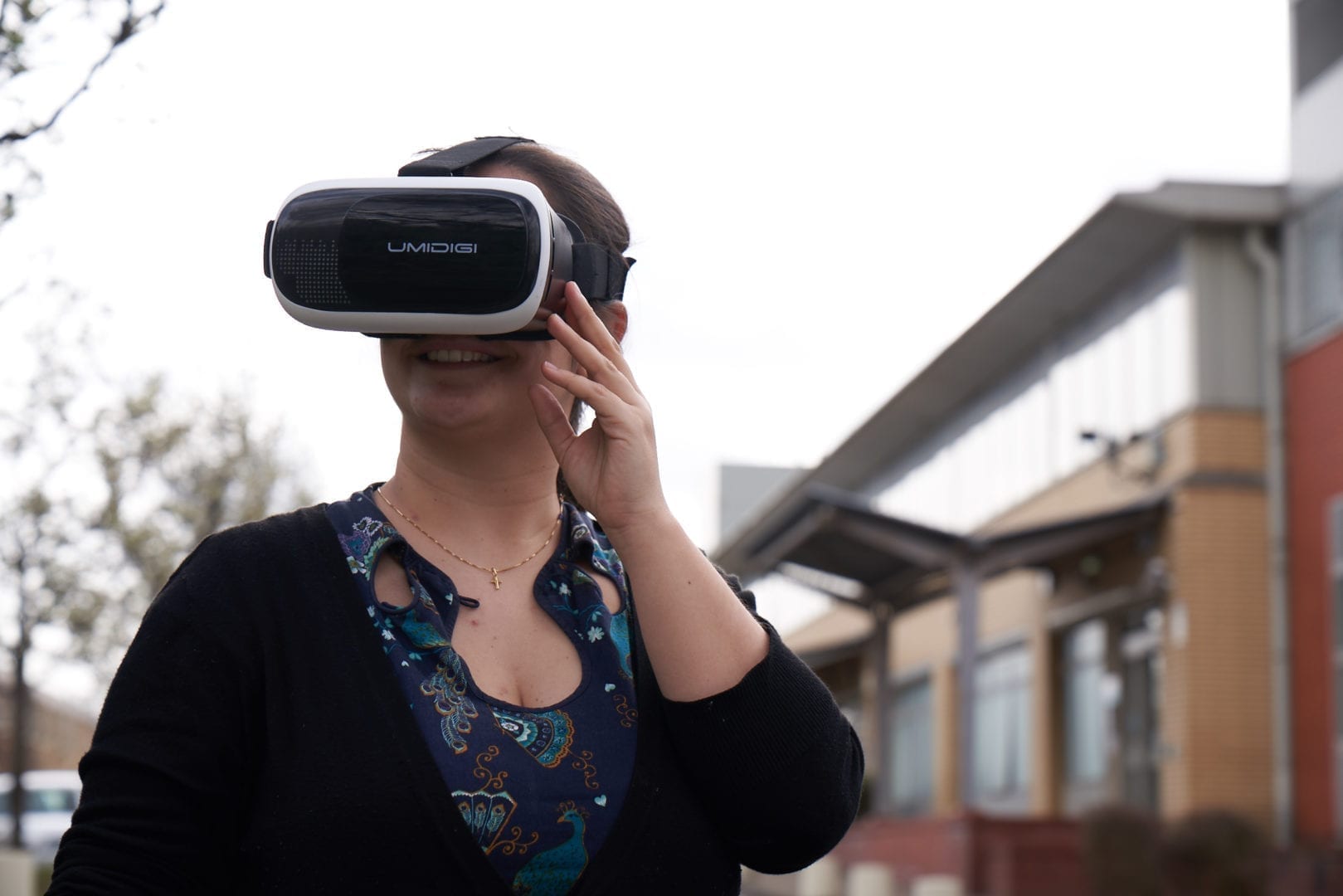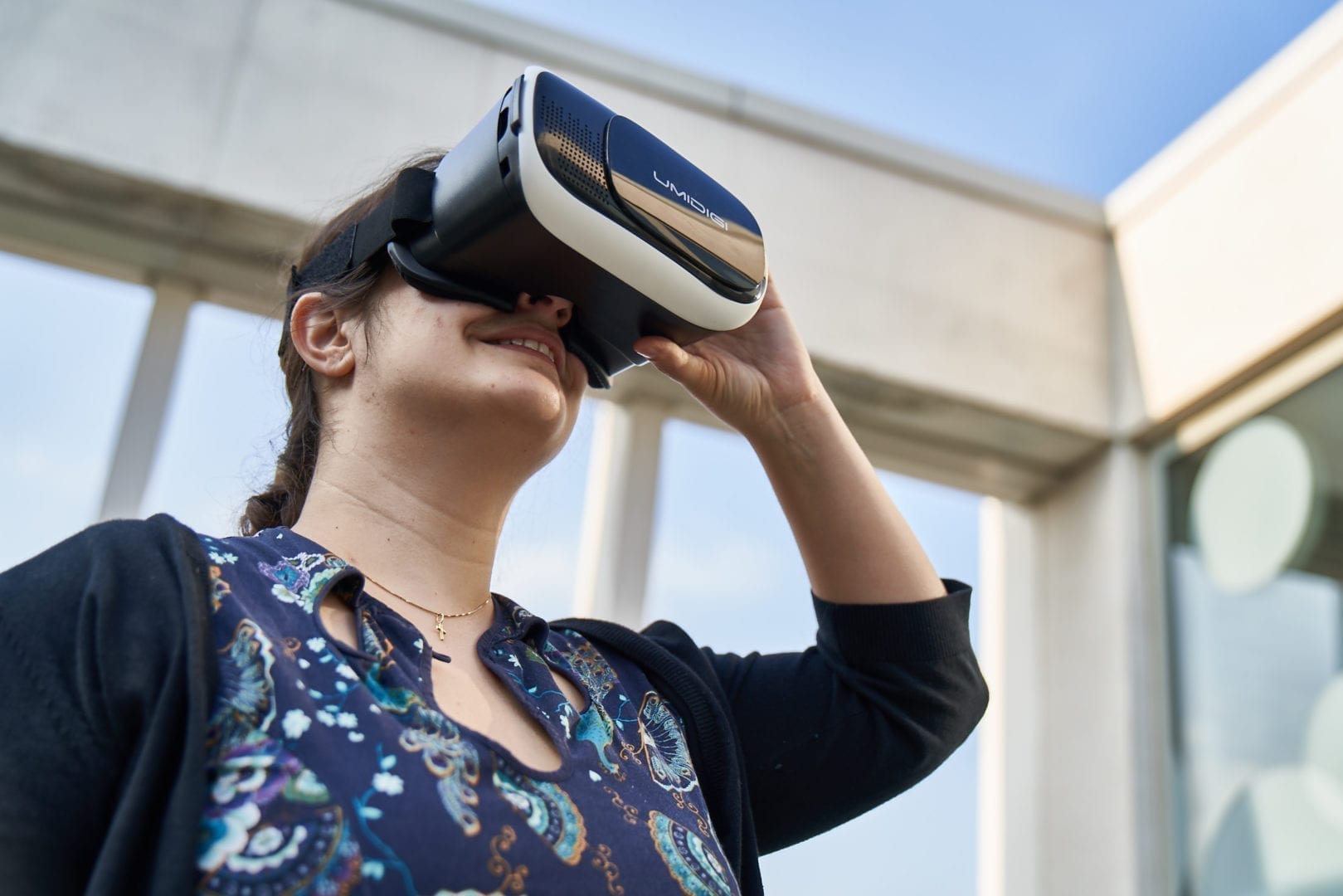Maudsley Charity is funding Maudsley Simulation to help make its high quality mental health training more widely available through the power of virtual reality. As the UK’s first simulation training centre and British Medical Journal Education Team of the Year 2018, its innovative techniques are improving services and experiences for all people affected by their mental health.
Maudsley Simulation’s training allows participants to experience real life recreations of clinical situations, before experiencing that scenario back in the workplace. It has partnered with Virti to develop and trial several scenarios simulated through VR, 18 of which are currently in production and being tested with South London and Maudsley NHS Foundation Trust (SLaM) staff.
“It’s quite common to use simulation training in acute care but traditionally less so in mental health. We try to recreate life-like situations that people are likely to come across in their jobs that are difficult to deal with. We work with highly trained actors and try to make the training as real as possible."
Advantages of VR
There are multiple advantages to staff tackling unfamiliar and challenging situations in a safe, virtual world, such as enhanced abilities in communication, critical thinking and decision-making. VR can capture situations that you can’t easily replicate with actors, such as something in a crowded or public place. It can also be used to demonstrate best practices.
VR can provide scalability for Maudsley Simulation’s existing training expertise and simulations, which use real life actors trained to portray experiences of mental health conditions. By working digitally, more variability within scenarios can be introduced, for example the age, gender, ethnicities and needs of actors playing simulated patients. The delivery of the learning tool and experience of learners can be standardised, and a much wider audience could be reached digitially, providing a more engaging learning opportunity that traditional e-learning.

Bringing mental health training to all
Since 2014, Maudsley Simulation has developed over 60 simulation courses, reaching over 6,000 multi-disciplinary health and social care staff and others supporting people with mental health needs. Currently based in SLaM, its ambition is to expand globally, and VR is one way in which it aims to achieve this.
The project is currently being piloted at SLaM, and will eventually engage with a wide range of professionals – not only primary and secondary healthcare workers but also allied healthcare staff and the emergency services.
The learning opportunities will be highly accessible, and help to solve some of the current inequalities in healthcare education and provision. It will address both the need for improvements in mental health training, and the growing mental health workforce.
As one of the first VR training opportunities of its kind, this work is opening up a world of virtual training that offers very promising outcomes in mental health. A wealth of data and evaluation from the project will provide insight into how it can expand even more effectively in future.

Improving services and patient outcomes
This will improve outcomes for patients and service-users, initially in the South London boroughs served by SLaM, but in the longer term the UK and the rest of the world.
In 2018, Maudsley Simulation won the Kate Grainger Compassionate Care Award for their innovative training, and a Lammy Award for Innovation in Lambeth, for their Police & Ambulance course which provides training for the police and ambulance workforce to help people in a mental health crisis.
Support us
Your donation will enable us to fund more innovative mental health training. We work with our projects to ensure that lessons learned are shared across the NHS and beyond, to bring benefit to people across the UK and internationally.
Donate today
